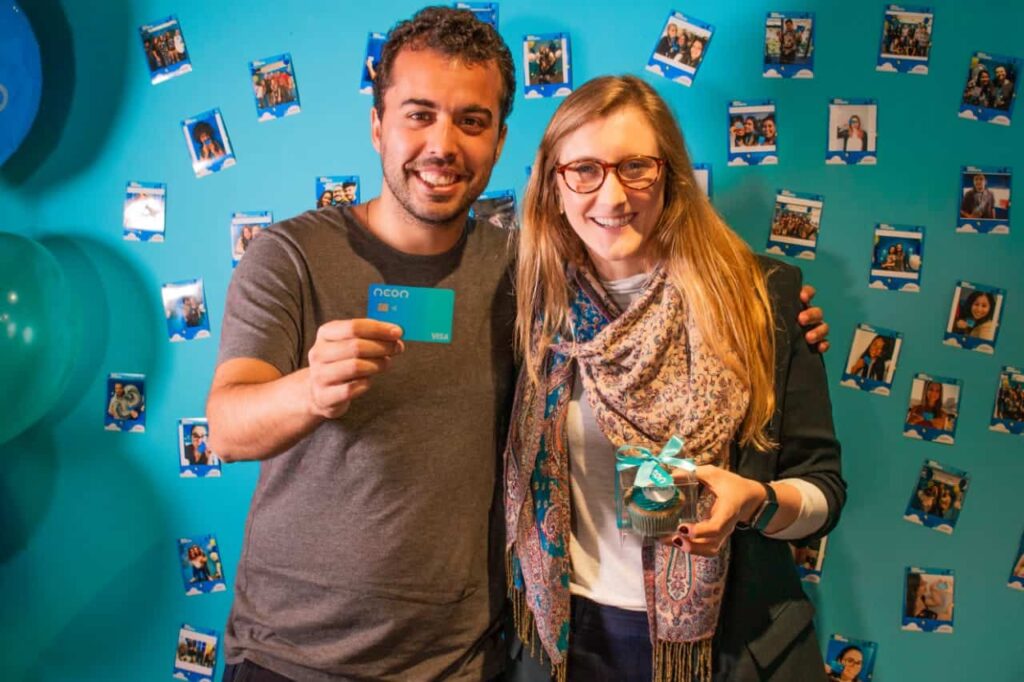Why We Invested in Neon: Reinventing the Bank in Brazil

Earlier this year, Forbes surveyed more than 40,000 customers in nearly dozen countries and published a list of the World’s Best Banks. On that list was a digital insurgent from Brazil that launched only three years ago: Neon.
In its initial three years on the market, Neon has signed up over 2 million users, growing from a founding team of 8 people in 2016 to about 400 employees today—double the size it was only six months ago. For those who think this might be a large number, compare that to the 86,000 staff working at Brazil’s largest bank—which ranked lower than Neon on the Forbes' list, by the way.
In Brazil, the banking system is dominated by a handful of retail banks—the five largest banks have 90 percent of the Brazilian retail banking market. Because the country is vast, the cost of acquiring new customers is high and traditional banks charge high fees. In fact, while on average 26 percent of adults surveyed worldwide by the World Bank’s Global Findex said cost was the top reason for not having a bank account; in Brazil, Colombia, and Peru, nearly 60 percent cited cost as a barrier.
Beyond high fees, customer service, and access is poor in Brazil, requiring customers to jump through cumbersome hoops whenever they want to change something in their account or when they have a question. Distance to a branch is a barrier for many. In Brazil, about 33 percent of adults surveyed by Findex said banks were too far away, 50 percent higher than the global average.
It is no wonder that while over 80 percent of Brazilians have a smartphone, only 70 percentage have a bank account. The gap is even wider among millennials.
Enter Neon, one of the first full service, digital banks in Brazil. Neon is trying to change this paradigm by offering a low cost, mobile-first product that provides an excellent customized experience and powerful financial management tools. They are re-bundling the best of fintech for Brazilian consumers. Goodbye big bank bureaucracy and hello Neon.
Neon does not offer physical branches—to open an account, users simply need to download the Neon app, be over 18 years of age, and have a valid ID. Neon offers a bank account, debit card, personal finance management and savings tools, and a recently launched credit card.
To give clients more control over their money, Neon shows customers recurring expenses on their card, and offers to round up payments to the nearest whole number, automatically investing these amounts. In the physical world, the card can even be used at turnstiles for the subway in Rio de Janeiro. It’s customer-centric features like these, along with lower cost and improved service that are luring customers to Neon and away from traditional banks.
The relentless customer focus was also translated into the challenger bank's irreverent marketing campaign, where Neon asks Brazilians to “cheat" their current bank relationship and try something better. "We are inviting people to question their long-standing relationships with some organizations, like the traditional bank," says Alexandre Alvares, Marketing Director of Neon Payments. "We want them to experience new financial services that can help them be better off.”
Earlier this year, Neon also launched a major campaign called Focus on the Money, providing financial education to consumers trying to get out of debt, start to save, or invest.
We have been investors in Neon since 2017 and witnesses the team to weather the shut down of their bank partner by Central Bank of Brazil for breaching financial regulations. Their relentless customer focus shone through once again through transparent communications and a full team literally working overnight to normalize operations for users. Neon found a solid new partner and came back growing strong.
At Flourish, we are proud to raise our cups to cheer Neon's third anniversary and excited to see the what other innovations the team will come up with to help people in Brazil achieve financial health.